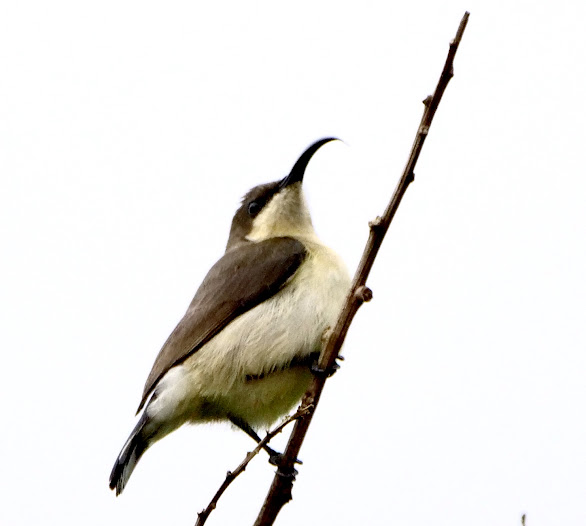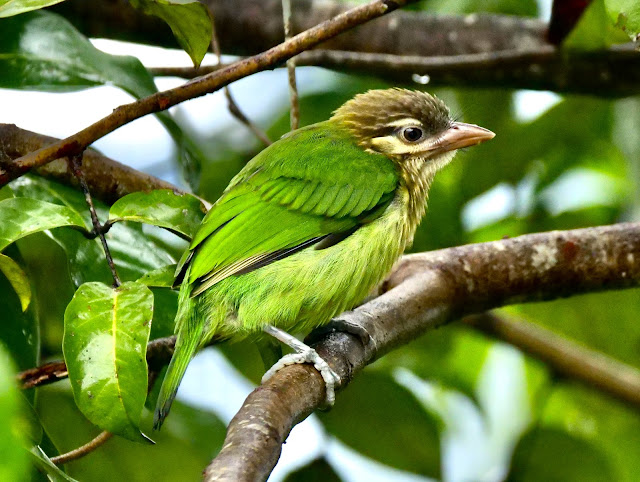The above five birds behave differently when compared to the adult birds of their species. They are stationed in and around the place for most part of the day. They take short flights ; their bid calls are short, subdued and occasional; when they feed they take longer time and stay at the feeding table resting in between. When the sunbird in the first photo feeds, it rests on the flowers unlike the other sunbirds which can feed by fluttering in the air.
They are beyond infancy, but not fully adults. The parent birds were still watching over the juvenile Barbet and Tree pie birds, especially during feeding time. The birds begin their independent journey as soon as they are able to fly and feed themselves.
Most of them have this transition carefully watched by one or both parent birds.
The ability to move about independently is the requirement to move towards independence!
Often the birds begin their solo experience before they become an adult bird.
The pre-school period of a child is a transition time. At about five years most children go to a school. Some might join a pre-school at three years. Some begin their lives in a creche during infancy and move to a day care when a toddler. The transitions take place at different ages for children by the time they are five or six years of age.
The constancy of parenting attention in the pre-school years is not consistent for many children.
Ther are five developmental processes taking place in the pre-school years. The physical growth, emotional growth, cognitive growth, social growth and rational growth. In fact they are foundational for future abilities, behaviour, conduct, temperament and formation of childhood.
The theory of the Multiple intelligences proposes a wider scope of promoting child development in the pre-school years. The theory of Dr Howard Gardener of the confluence of intelligences in children gives parents a spectrum of opportunities in overseeing the developmental formation of children.
The intelligences include, Linguistic, Logical-mathematical, Spatial, Body-kinesthetic, musical, interpersonal, intrapersonal and naturalist orientation. Each child possesses a unique integration of each of these intelligences, some dormant and some explicit with varying levels of expressions.
I presume that this in itself is a major reason for parents to be even more intense on their focus on parenting in the pre-school years.
A child is a treasure entrusted to each parent.
I wonder how many parents sit down after children go to bed each day to write a journal about their children ! If parents can develop the habit of writing a journal on events and experiences of each week, then parents would get to know the unfolding of the personhood of that child. The tendency is to engage the child when there is an event, or instruction or correction. That is a limited knowledge of a child. But when parents write a journal of a child after combined sharing about the observations of the child , it becomes a profile of the way a child is becoming.
The becoming process that parents discover about the child provides the pathfinder for parents to guide the child in the way he or she can proceed.
A the end of the year, parents would have 52 entires in their journal on each child for parents to have an intimate appreciative audit of the child's developmental formation. The journal can have sketches and photographs to have it made as a rich and colourful source to share it with the children periodically for them to know for themselves who they are becoming.
Many parents have a baby book for their child, but entires often stop by the time a child is one year. My proposal is to extent it to the adolescent years. So parents become authors 'of the formative journey' of their children by being diligently and intimately involved with them.
Parenting needs greater attention, as the prospect of who a child can be, if foreseen early enough, then parents can invest correspondingly in the evolution of a child towards the adolescent years.
M.C.Mathew(text and photo)





No comments:
Post a Comment